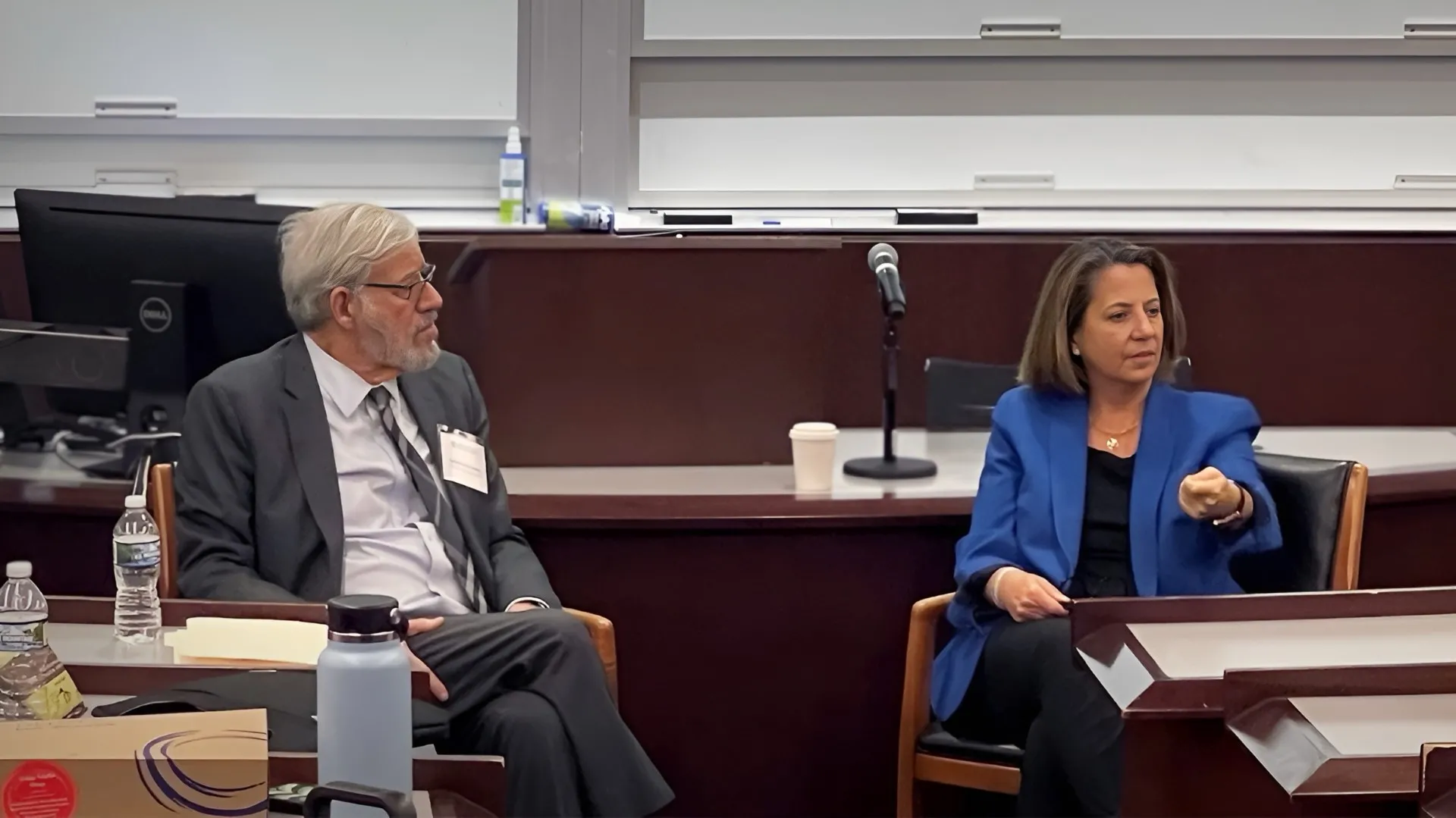Reimagining National Security

National security has never been more important than in our world’s current moment. With the conflict in the Middle East, the war in Ukraine, climate change, and many ongoing technological advances, what we understand as our nation’s security is changing. But how and why does the idea of national security change? In the Legal Forum’s 2023 Symposium “Reimagining National Security,” leading scholars discussed how law and policy has and will change our conception of national security.
Below are some highlights from the event:
United States Deputy Attorney General Lisa Monaco, ’97, gave the keynote address. Monaco’s visit to the Law School comes at a challenging time in national politics: a looming shutdown, trials against the January 6 defendants, tension with China, and a climate crisis. In her keynote, she gave the symposium attendees an idea of how the Department of Justice is approaching national security in a changing global landscape. Monaco emphasized the Department of Justice’s commitment to combatting domestic terror threats to national security. Her speech was followed by a Q&A moderated by Professor Geoffrey Stone, ’71.
The Symposium was organized into four panels: Tech/cyber/data, science, “traditional” national security, and international relations. Professor Tom Ginsburg moderated the panel on international relations, where scholars Sahar Aziz, from Rutgers Law School, and Morag Kersel, from DePaul University, discussed how recent developments in the Middle East have changed the way we imagine national security. Kersel, who is a professor of anthropology, focused on how cultural artifacts have become intertwined with national security, especially during the Iraq War. The Q&A portion focused heavily on the Israel-Hamas conflict. There was some disagreement, but the discussion was respectful and informative.
Professor Aziz Huq moderated the tech/cyber/data panel. With AI in the headlines and big data in the sights of regulators, scholars discussed the ways law often lags behind technological advances. Computer Science Professor V.S. Subrahmanian, from Northwestern University, presented a study he and his co-authors ran that found that AI-detection technology was often inaccurate, posing issues for judges who are presented with potentially AI-generated evidence. The Q&A highlighted the many issues faced by lawmakers and judges, who often lack the technical expertise necessary to address technological advances.
Professor Geoffrey Stone moderated the panel on “traditional” national security. We put quotation marks around “traditional” because the presentations were anything but. Standford Law Professor Shirin Sinnar discussed how the US government favors terrorism charges rather than treason charges when faced with crimes related to national security. Sinnar argued that new charges often replace old ones when they become controversial, but the use of new charges often replicates the same problems that sparked the change. Attendees asked great questions during the Q&A, with many questions focusing on the increased use of seditious conspiracy charges against individuals accused of crimes implicating national security.
Professor Hajin Kim moderated the panel on science, where scholars discussed how national security policy should change in the face of global pandemics and climate change. Professor Mark Nevitt, from Emory University School of Law, argued that the US national security apparatus is well-equipped to tackle climate change, especially in light of how much the US military contributes to carbon emissions. The Q&A focused on the intersection of climate change and pandemic protection, highlighting how the climate crises exacerbates global pandemics and creates a need for international sharing of vaccine patents.
My favorite panel was the panel on international relations, given that the Israel-Hamas conflict and campus free speech have been in the headlines lately. Professor Sahar Aziz gave a passionate presentation about her piece that explores the racialization of Israeli and Palestinian people. While many discussions about the Israel-Hamas conflict can become heated, this conversation was respectful, informative, and open. It was refreshing to see open discourse about a contentious issue.
Caleb Jeffreys, ’24, is the Membership & Symposium Editor of the University of Chicago Law School Legal Forum. Caleb graduated from the University of Chicago in 2020 and was an LSAT tutor before matriculating to The Law School as a Chicago Law Scholar. Caleb is involved with the Black Law Students Association, the Chicago Inn of Court, the Criminal and Juvenile Justice Clinic, and Minds Matter Chicago. After graduation, Caleb will be clerking for the United States Court of Appeals for the Seventh Circuit for two years.